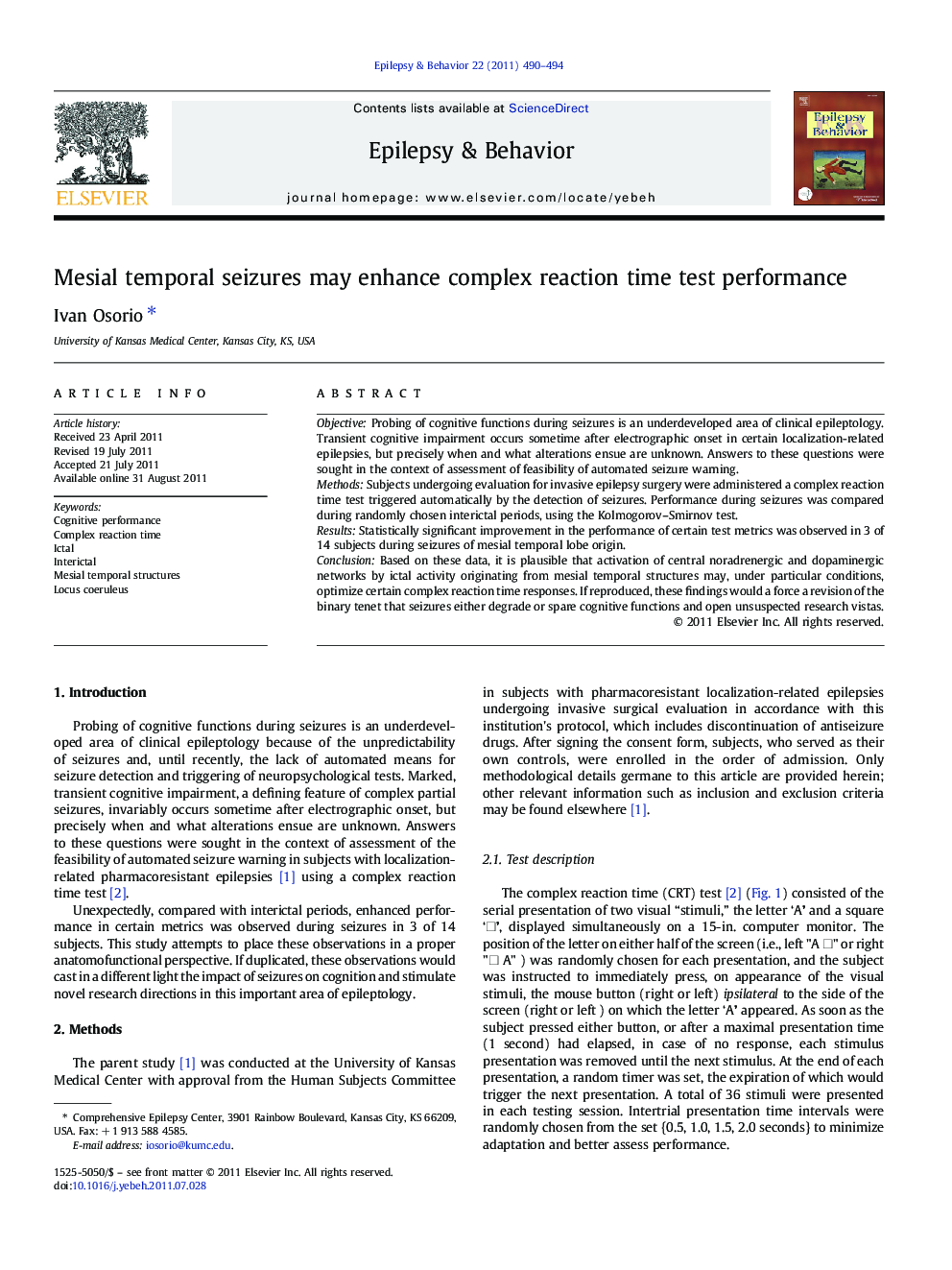| Article ID | Journal | Published Year | Pages | File Type |
|---|---|---|---|---|
| 6014428 | Epilepsy & Behavior | 2011 | 5 Pages |
ObjectiveProbing of cognitive functions during seizures is an underdeveloped area of clinical epileptology. Transient cognitive impairment occurs sometime after electrographic onset in certain localization-related epilepsies, but precisely when and what alterations ensue are unknown. Answers to these questions were sought in the context of assessment of feasibility of automated seizure warning.MethodsSubjects undergoing evaluation for invasive epilepsy surgery were administered a complex reaction time test triggered automatically by the detection of seizures. Performance during seizures was compared during randomly chosen interictal periods, using the Kolmogorov-Smirnov test.ResultsStatistically significant improvement in the performance of certain test metrics was observed in 3 of 14 subjects during seizures of mesial temporal lobe origin.ConclusionBased on these data, it is plausible that activation of central noradrenergic and dopaminergic networks by ictal activity originating from mesial temporal structures may, under particular conditions, optimize certain complex reaction time responses. If reproduced, these findings would a force a revision of the binary tenet that seizures either degrade or spare cognitive functions and open unsuspected research vistas.
⺠Cognitive functions are either preserved or degraded during partial seizures. ⺠Reaction time performance is modulated by noradrenergic/dopaminergic networks. ⺠Mesial temporal seizures enhanced complex reaction time performance in 3 of 14 subjects. ⺠Mesial temporal and dopaminergic/noradrenergic networks are interconnected. ⺠Noradrenergic/dopaminergic activation by epileptogenic temporal mesial structures may theoretically explain the results.
